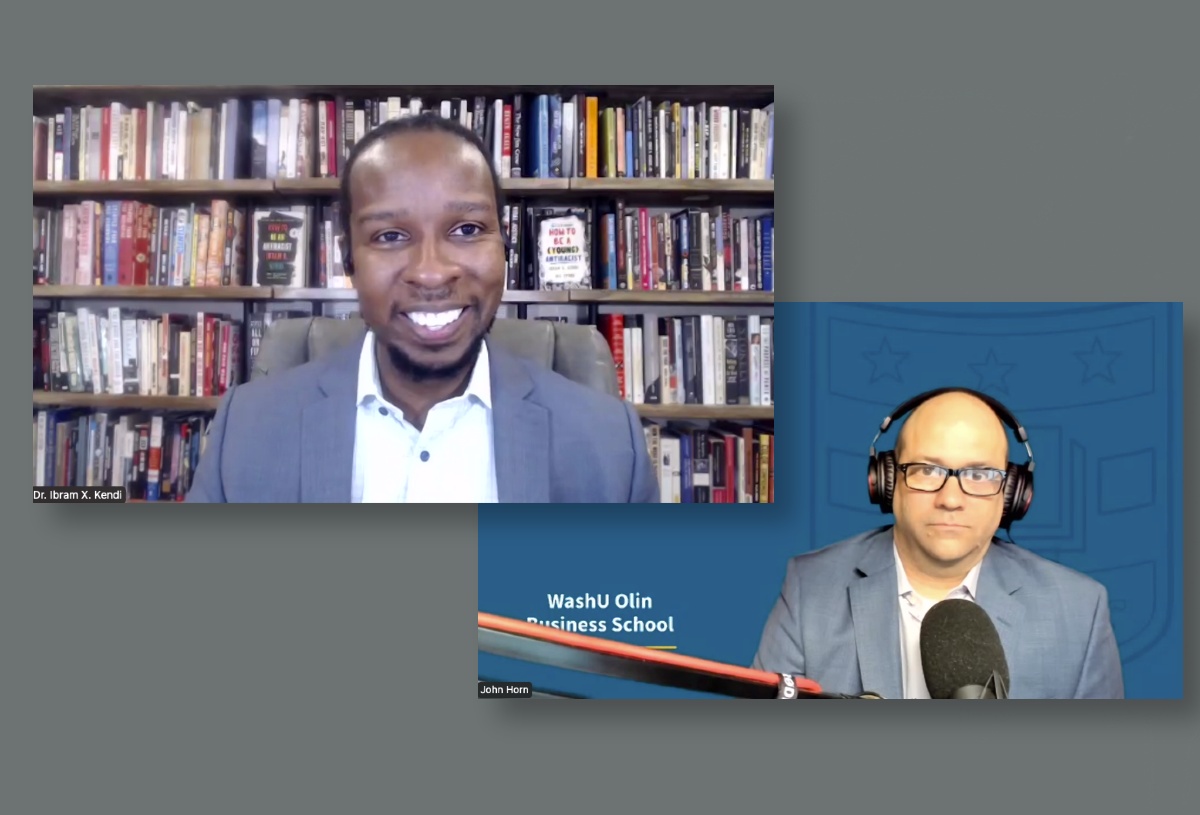Ibram X. Kendi: Use data-driven tools to foster antiracist organizations
- December 19, 2022
- By Kurt Greenbaum
- 2 minute read

Organizations lamenting their inability to identify, recruit and retain a diverse set of employees may need look no further than their own data to find strategies to address it, according to author and antiracism scholar Ibram X. Kendi.
“Organizations need to start reflecting on the fact that they if they are not diverse, they need to look in the mirror,” Kendi said during a Diversity Perspectives discussion for WashU Olin on December 7. “Companies that are effective are making data-driven decisions. They should collect a great deal of data about at what point in the process might be the problem.”
Kendi is a New York Times bestselling author, Boston University professor and the director of BU’s Center for Antiracist Research. He joined WashU Olin’s John Horn, professor of practice in economics, for an hourlong conversation about how businesses and organizations might strive to adopt antiracist practices.
Dig into data
Kendi urged business leaders to dig into their data: Who is applying? Who is getting interviews? Who is getting offers, getting hired, getting promoted? How long are they staying with the organization? Why are they leaving? “You may find you’re getting a diverse pool of people to apply, but they’re not proceeding to the second interview, or they’re being hired, but not retained,” Kendi said.
He said he’s seen a lack of attention to data create misguided attempts at corporate philanthropy in the name of antiracism. For example, in the wake of the May 2020 murder of George Floyd, some businesses stated an interest in using philanthropy to close the racial wealthy gap, sending donations to support financial literacy programs in Black communities.
“That presupposes that the cause of the racial gap was caused by financial illiteracy,” Kendi said. But that’s not what the data shows. “That philanthropic decision that some businesses chose wouldn’t move the needle in terms of the racial wealth gap.”
Throughout the conversation, Kendi returned to the theme of data, but also noted that data is only a starting point. Data tells a story about what’s happening—but not why. “The data is not an answer. The data is only a window,” he said. “We have to look at what’s truly happening in these places and spaces.”
That means disaggregating the data by gender, class, ethnicity and other dimensions of identity to get a fuller picture of how individuals and groups are being affected in the workplace and beyond. Leaders have to dig into the qualitative data as well, examining how culture influences the workplace.
“Are we accepting the reality that each culture has a different sense of what professionalism is, or to be even more specific, what is professional attire may be is different among different cultures,” he said. “Are we ensuring that the ways in which people wear their hair from a cultural standpoint—that all of that is allowed and included?”
Ultimately, he noted, “companies with diverse staffs are more likely to be productive and efficient. It’s in their self interest.”
Media inquiries
For assistance with media inquiries and to find faculty experts, please contact Washington University Marketing & Communications.
Monday–Friday, 8:30 to 5 p.m.
Sara Savat
Senior News Director, Business and Social Sciences
